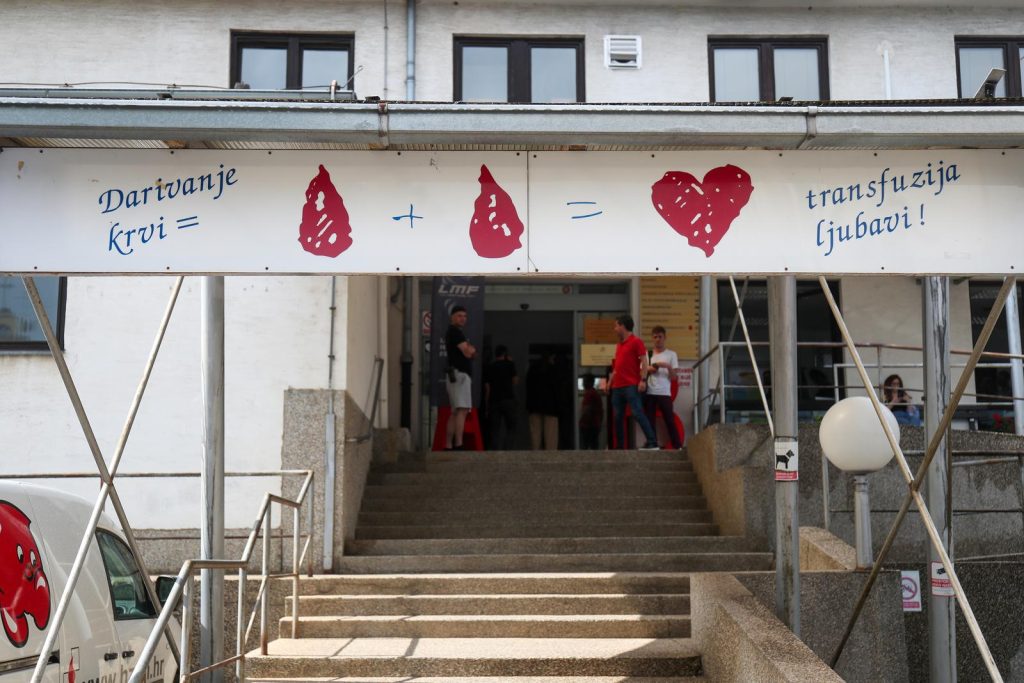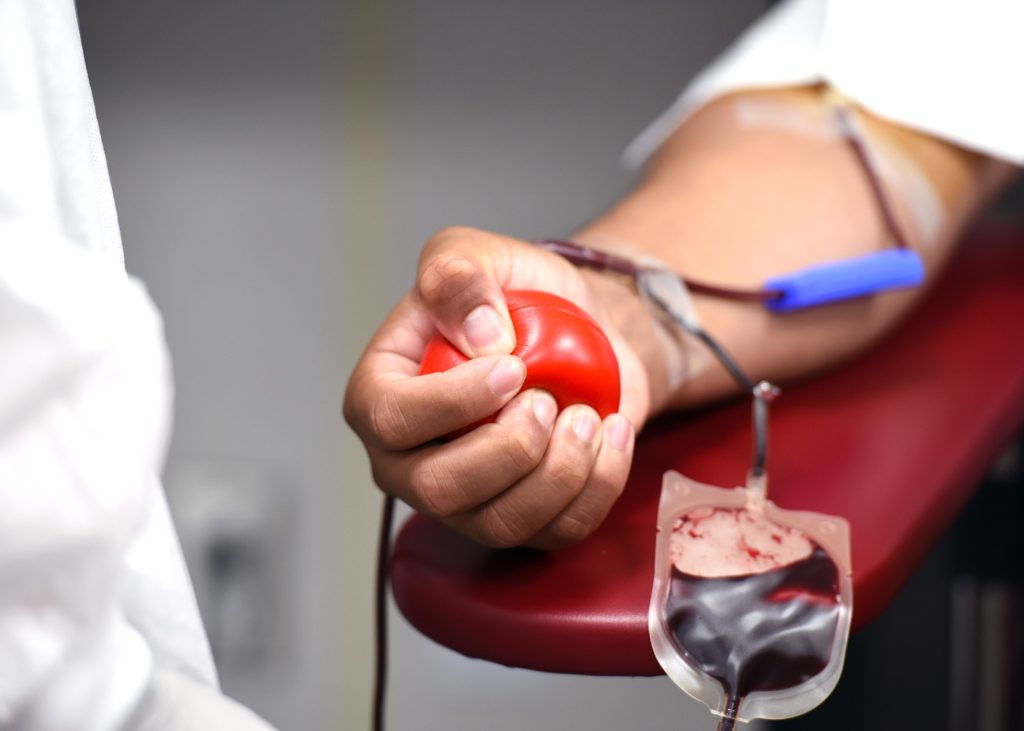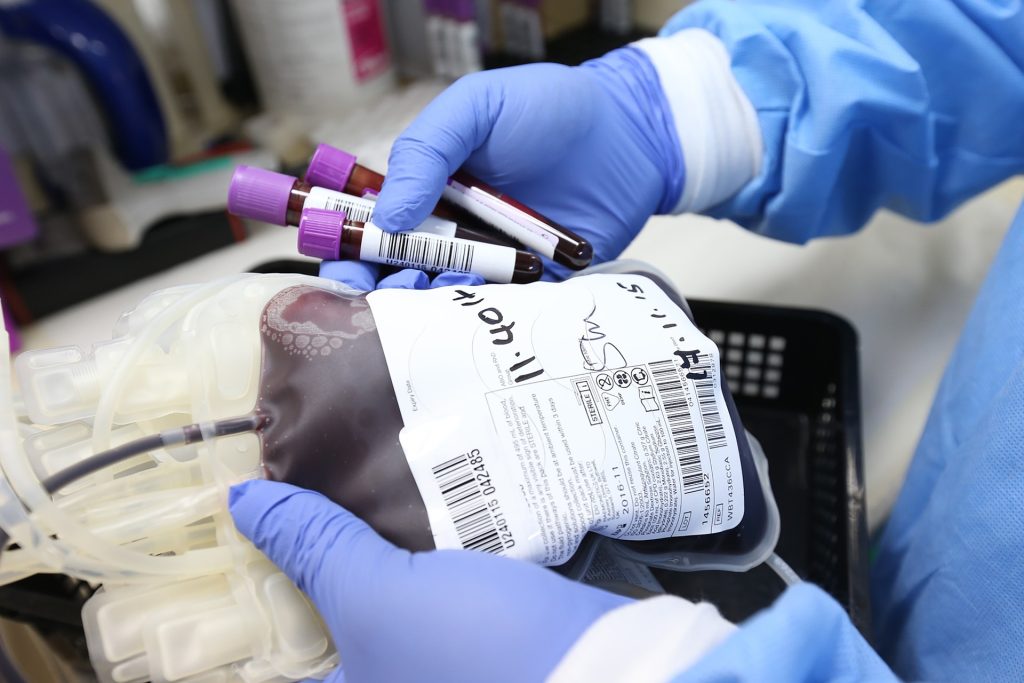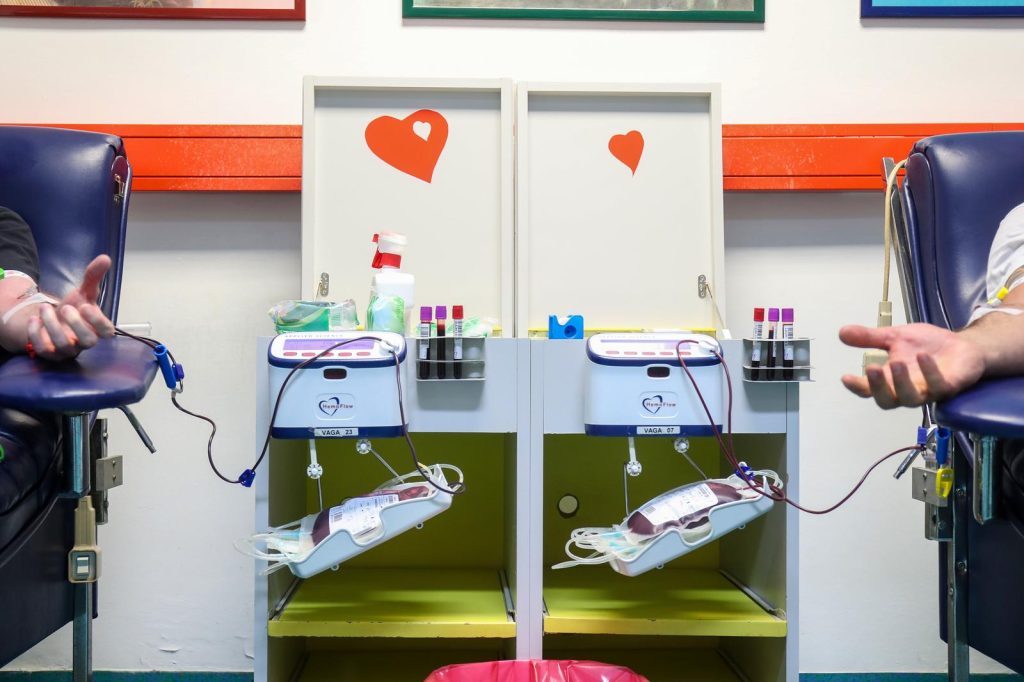July the 18th, 2023 – Croatian blood donation is handled much in the same way as it is handled elsewhere across Europe, if not the world. That said, there are some important and rather specific caveats to note.
First things first, let’s look into the main body which organises Croatian blood donation up and down the country. That’s the Croatian Red Cross (Hrvatski crveni kriz).
Blood donation campaigns and annual blood collection plans

As noted above, the Croatian Red Cross is the founder of voluntary Croatian blood donation, it promotes voluntary blood donation, organises and implements various national and regional blood donation campaigns, finds donors, and even gives out awards in accordance with the Rulebook (Pravilnik) on awards of the Croatian Red Cross. It also takes full care of and records individual blood donors and issues them with any necessary certificates.
160,000 doses of blood are collected annually thanks to Croatian Red Cross activities
In order to meet all the needs of the Croatian healthcare system when it comes to blood and blood products, and in cooperation with the transfusion services, an annual blood collection plan and calendar of actions is drawn up according to the expressed needs of the healthcare system at the given time. The Croatian Red Cross takes care that the flow of blood (no pun intended) collected throughout the year is continuous. Around 160,000 doses of blood are collected annually under the organisation of the Croatian Red Cross, which amounts to 3.5 donations per 100 inhabitants.
In most countries across the world, this activity is entrusted to their respective Red Cross services due to their engagement in all kinds of humanitarian work. Non-profit blood donation and collection is also an important factor in this story.
Educating the general public on the importance of Croatian blood donation

The Croatian Red Cross pays special attention to the general education of the wider population in building awareness of the importance of donating blood. It also works to create a positive attitude about voluntary blood donation, as well as the continuous education of its employees and volunteers.
A brief history
The Day of Voluntary Blood Donors in Croatia is celebrated on October the 25th each year. On that day back in 1953, the very first voluntary Croatian blood donation campaign organised by the Croatian Red Cross was carried out in Sisak. It was based on the basic principles of voluntary blood donation – people came to donate blood voluntarily, for free, in solidarity and also anonymously.
The aforementioned principles were first published by the League of Red Cross Societies in 1948, and supported by the World Health Organisation due to the danger of the spread of various diseases through blood taken from paid blood donors.
In order to ensure high-quality and safe blood, the World Health Organisation and the International Federation of Red Cross and Red Crescent Societies (IFRC), of which the Croatian Red Cross is a member, adopted a document in 1999 in which they undertake to ensure the provision of blood and blood products be based on voluntary and unpaid blood donation.
The Croatian Red Cross’ blood donation calendar

As a very helpful tool, the Croatian Red Cross has a frequently updated calendar which lists its times and dates for blood donation “actions” across the country. You can access it here.
Who can donate blood in Croatia?
There are some specifics involved in this, so we’ll go into each of them.
You can donate blood if you’re a healthy person between the ages of 18 and 65 (you can also be 70 if you’re in good health)
You need to weigh over 55 kilograms
Your body temperature must be up to 37 degrees (this will be measured)
Your doctor needs to have given you the green light to donate your blood
Important caveats
Men can donate their blood in the classic way four times per calendar year with an interval of three months between each of their donations, and women can donate three times a year with an interval of four months between their donations.
According to the legislation in the Republic of Croatia, only people who hold full Croatian citizenship may donate blood in this country.
Can you be rejected?
Yes. However, this almost always takes place solely because it wouldn’t be in the interest of your own health to make a donation at that time. That said, there are a few other reasons, these include the following:
If you have low haemoglobin
If you’re pregnant, breastfeeding or currently menstruating
If you’re suffering with an acute illness such as influenza or a common cold
If you’re intoxicated or on drugs
If you’ve recently had surgery
If you’re currently taking antibiotics/if you have a current infection
If your blood pressure is too high or too low
If you have tattoos or piercings
If you’ve already received a blood transfusion
If you’ve had certain vaccinations
If you aren’t a full Croatian citizen
An important note about Creutzfeldt-Jakob Disease (vCJD)

Even if you’re a Croatian citizen, you may be turned away from donating blood if you spent any longer than six months in the United Kingdom between 1980 and 1996. This is because of Mad cow disease/BSE (Bovine spongiform encephalopathy).
A permanent ban on blood from people who were in the UK in this time frame is in place in a number of European countries following the UK outbreak of transmissible human variant Creutzfeldt-Jakob Disease (vCJD), which is Mad cow disease when it presents in cattle. It’s a devastating and invariably fatal neurodegenerative prion disease that can incubate undetected in an individual for many, many years. There’s no screening test either, which means blood donations cannot be tested for its presence.












